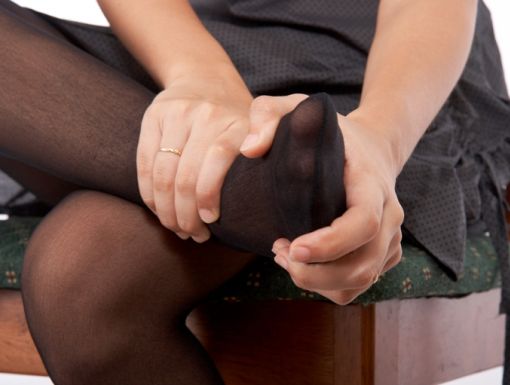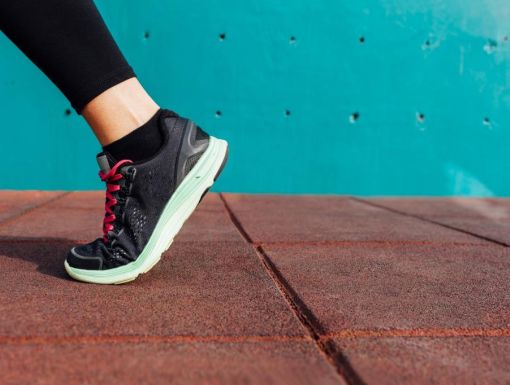
Why Are My Feet Always Cold?
Are you someone that no matter how warm you set your house or how many pairs of socks you wear your feet are still cold? While experiencing cold feet from time to time is normal, there may be underlining issues if the occurrence happens frequently.
What causes cold feet?
There are several reasons why your feet may be getting cold. Some are environmental factors while others have more to do with your medical health. Some reasons may include:
- A drop in temperature – During the winter months, it is common for your feet and hands to become cold. This is because the body starts to constrict the blood flow to extremities like the feet and hands to help reduce the amount of body heat lost. Your feet and hands are the furthest away from your vital organs, so reducing blood flow to those areas helps to keep other important areas of your body warm. If you are in the cold for an extended period of time, this decreased blood flow may cause your feet to turn slightly blue or purplish, but these symptoms are often nothing too serious and will go away once your feet are warmed back up.
- Stress and anxiety – When a person becomes stressed or their anxiety is heightened, the body’s natural reaction is to pump more adrenalin into the bloodstream, which can cause blood vessels to constrict and cause less blood flow to extremities like the feet. The body does this to help reserve energy in case it needs to prepare for any harm that might happen.
- Poor Circulation – One of the most common causes of cold feet, poor circulation can make it difficult to get enough warm blood to your feet. There are a few different causes of poor circulation that include: heart conditions that may prevent your heart from pumping blood through your body quickly, sedentary lifestyle and smoking.
- Type 1 and 2 diabetes – Frequent high blood sugar levels can cause arteries to narrow, which can decrease blood flow to certain parts of the body including the extremities. For some people with diabetes, they can also experience peripheral nerve damage called diabetic peripheral neuropathy. The peripheral nerves send messages from the central nervous system to the brain and can tell the body when, for example, the feet are cold. If this system is damaged, it can lead to tingling, prickling, numbness and muscle weakness in various parts of the body. Damage to these nerves can happen when people have high, uncontrolled blood sugar levels for an extended period of time.
- Anemia – People develop anemia when they have a shortage of red blood cells. Those with moderate to severe anemia may experience cold feet. The good news is anemia can be treated with diet modification and medication.
- Hypothyroidism – When a person’s thyroid is underactive and doesn’t produce enough thyroid hormones, they can develop hypothyroidism. One symptom of hypothyroidism is lower metabolism rates, which can affect the body’s heart rate and body temperature, causing your feet to become cold.
- Reynaud’s disease – This is disorder occurs when arteries in the tips of your toes and fingers shrink and limit the blood supply to the area. Cold weather and stress can trigger this shrinking even further and can cause pain, numbness and color change in the skin.
What can I do to prevent cold feet?
If you are prone to getting cold feet, start with simple adjustments.
- Invest in well insulated socks or slippers, such as wool socks, to help keep your feet warm.
- Start exercising. This can help with circulation and help increase blood flow to your feet.
- Soak your feet in warm water. This can be the quickest way to warm your feet back up. Fill a tub or bowl with warm water and let your feet soak for 10-15 minutes to help get the blood circulating in your feet. Keep in mind that people with diabetic nerve damage should avoid warm or hot water soaks because they may not be able to tell when the water is too hot, which can lead to burns.
When should I see a doctor about cold feet?
As mentioned, getting cold feet is common and it doesn’t always warrant an immediate visit to the doctor. However, if your issues persist, you should let your primary care doctor know at your next visit. Additionally, make an appointment with your primary care doctor if you start to experience additional symptoms, such as:
- Weight loss
- Fatigue
- Fever
- Joint pain
- Sores on your feet or between your toes that are not healing
- New rashes or changes in your skin
If you present with these additional symptoms or your cold feet issues persist, your doctor will most likely perform a physical exam to look for any signs of possible nerve damage or trauma. Blood work can also be ordered to determine if there are any underlining conditions such as diabetes, anemia or hypothyroidism that may be causing the issues. Based on results, treatment for cold feet can vary. Cold feet caused by anemia or hypothyroidism can be treated with medications to treat the conditions. If your cold feet are due to poor circulation, your doctor will likely recommend exercise to help improve your circulation.



